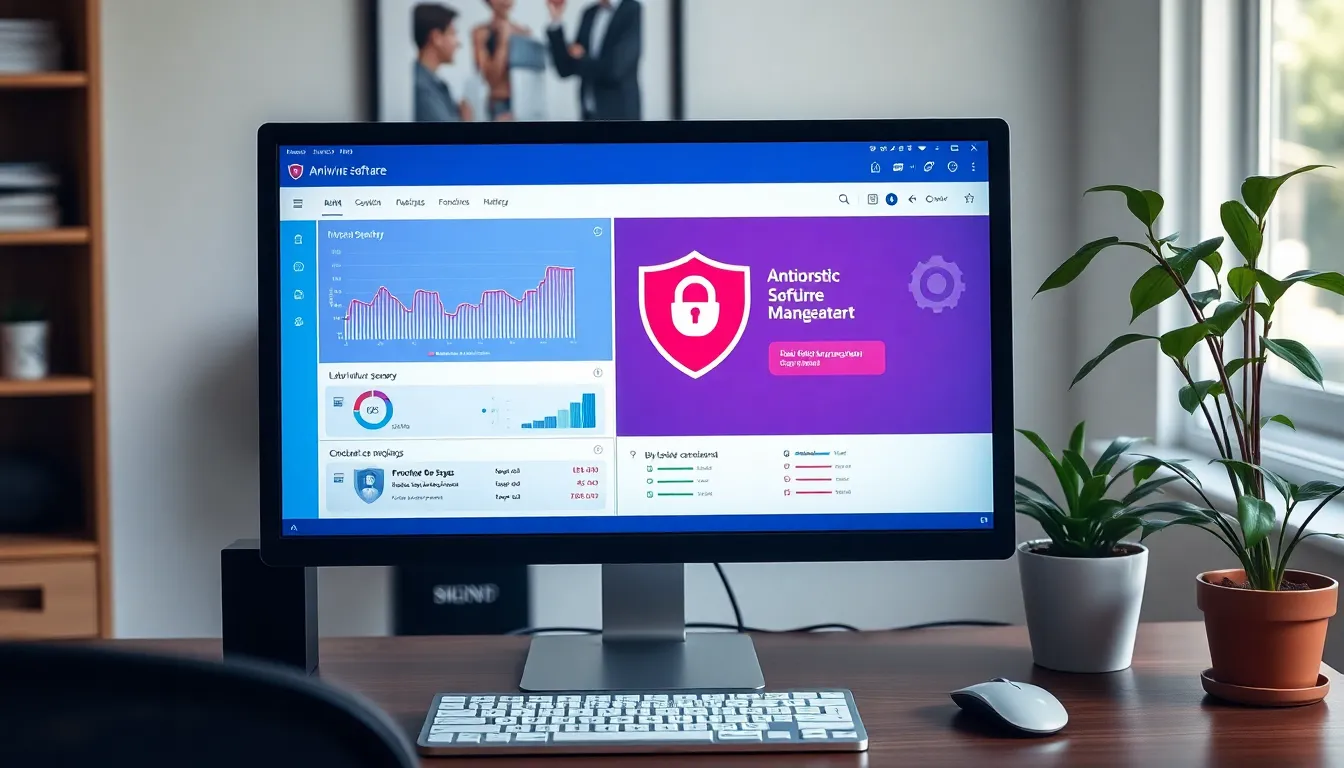In today’s digital world, protecting personal and sensitive information has never been more crucial. With cyber threats evolving at an alarming rate, antivirus software has become an essential tool for anyone using the internet. This software acts as a shield, guarding against a variety of malicious attacks, from viruses and malware to phishing scams.
Choosing the right antivirus solution can feel overwhelming with countless options available. Each offers unique features and varying levels of protection. Understanding how antivirus software works and what to look for can empower users to make informed decisions and keep their devices secure. In this article, we’ll explore the key aspects of antivirus software and why it’s a must-have for anyone navigating the online landscape.
Table of Contents
ToggleOverview Of Antivirus Software
Antivirus software serves as a vital tool in protecting devices and networks from various cybersecurity threats. These threats include viruses, worms, ransomware, and spyware, which can compromise sensitive information and damage system functionality. Antivirus solutions operate through several key mechanisms.
Detection Methods
- Signature-based detection: This method scans files for known malware signatures, allowing quick identification of threats.
- Heuristic analysis: This approach analyzes behaviors of programs to detect unknown threats based on suspicious actions.
- Behavioral detection: This technique monitors real-time activities and flags anomalies that suggest malicious intent.
Key Features
- Real-time scanning: Continuous monitoring for threats provides instant protection against emerging risks.
- Regular updates: Frequent updates ensure the software remains effective against the latest malware variants.
- Quarantine capabilities: Infected files are isolated to prevent collateral damage to the system.
Additional Tools
- Firewall protection: Some antivirus solutions include built-in firewalls to block unauthorized access.
- Web protection: Features like URL filtering enhance browsing security by warning users against visiting malicious sites.
- Email scanning: Integration of email scanning prevents phishing attempts and malware-laden attachments from reaching the inbox.
Antivirus software is essential for maintaining digital security. The right solution combines detection methods, key features, and additional tools for comprehensive protection against evolving online threats.
Types Of Antivirus Software

Antivirus software comes in various forms, catering to different user needs and preferences. Understanding these types helps users choose the right protection for their devices.
Free Antivirus Solutions
Free antivirus solutions offer basic protection against malware and viruses. They typically include essential features such as:
- Real-Time Scanning: Monitors files and programs for potential threats.
- Manual Scanning: Users can initiate scans of specific files or entire systems.
- Signature Updates: Basic database updates for known threats.
Examples of popular free antivirus software include Avast Free Antivirus, AVG AntiVirus Free, and Bitdefender Antivirus Free Edition. While effective for light usage, these solutions may lack advanced features like premium customer support, firewall protection, or in-depth malware removal capabilities.
Paid Antivirus Solutions
Paid antivirus solutions provide comprehensive protection and advanced features. These programs often include:
- Advanced Threat Detection: Enhanced algorithms for identifying sophisticated malware.
- Firewall Protection: Monitors incoming and outgoing traffic to block malicious activity.
- Email Protection: Scans email attachments and links for threats.
- VPN Services: Offers secure internet browsing through encrypted connections.
Examples of leading paid antivirus solutions include Norton 360, McAfee Total Protection, and Kaspersky Total Security. These programs generally offer a more robust defense against evolving threats and frequent updates, ensuring users benefit from the latest security enhancements.
Features To Look For In Antivirus Software
Choosing the right antivirus software requires understanding its essential features. Key functionalities enhance protection and user experience.
Malware Protection
Effective antivirus software must provide robust malware protection. It should detect and eliminate various forms of malware, including viruses, worms, and ransomware. Top solutions utilize advanced detection methods, such as signature-based detection and heuristic analysis, to identify malware threats proactively. Frequent updates ensure that the software recognizes the latest malware strains, keeping systems secure from emerging threats.
Real-Time Scanning
Real-time scanning offers continuous protection against threats. This feature monitors files and applications actively as they are accessed, providing immediate detection of any malicious activity. Efficient real-time scanning capabilities identify potential threats before they can cause damage, allowing users to maintain a secure environment without disruption.
User-Friendly Interface
A user-friendly interface simplifies the interaction with antivirus software. Ideal solutions feature intuitive navigation and clear options for scanning and settings adjustments. A well-designed interface accommodates both novice and experienced users, making configuration tasks straightforward. Accessibility to essential functions minimizes complexity, ensuring that users can manage their antivirus software effectively.
Top Antivirus Software Reviews
This section reviews leading antivirus software options available today, focusing on features, effectiveness, and user satisfaction.
Software A
Norton 360 offers comprehensive protection against various online threats. Key features include real-time threat detection, secure VPN, and cloud backup. It excels in malware removal, boasting a 99% detection rate according to independent testing organizations. The user-friendly interface simplifies navigation, making it suitable for both novices and experienced users. Norton 360 provides regular updates, ensuring users stay protected against emerging threats.
Software B
McAfee Total Protection stands out with robust features designed for cross-platform protection. It includes identity theft protection, web monitoring, and a powerful firewall. McAfee’s multi-device support allows users to secure multiple devices under one subscription. The software consistently ranks high in malware detection, reaching an impressive 98% success rate in recent tests. The interface remains intuitive, facilitating easy management of security settings.
Software C
Bitdefender Antivirus Plus is renowned for its advanced threat defense technologies. This software employs machine learning and behavioral detection for superior threat identification. Bitdefender provides features such as ransomware protection, password manager, and file encryption. Independent evaluations show a 99.8% malware detection rate, making it highly effective against various cyber threats. The lightweight design ensures it doesn’t hinder system performance, appealing to users who prefer seamless operation.
Choosing the right antivirus software is essential for anyone looking to safeguard their digital life. With a variety of options available users must consider not only the effectiveness of malware detection but also the additional features that enhance overall security.
Investing in a reliable antivirus solution can significantly reduce the risks associated with cyber threats. By understanding the capabilities of both free and paid antivirus software users can make informed decisions that best suit their needs.
Ultimately the right choice will provide peace of mind and ensure that personal and sensitive information remains protected in an increasingly complex digital world.



